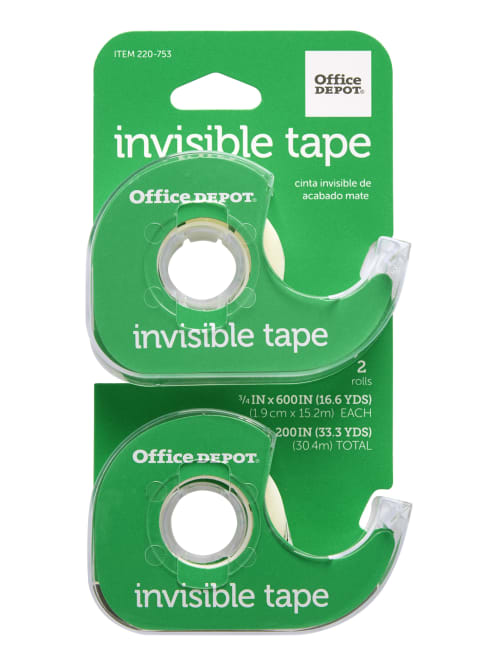Invisible 2 4 4 X 6

How do you solve #log_2(x-6)+log_2(x- 4)=log_2x#?
2 Answers
Explanation:
With Dove Invisible Solid Antiperspirant Deodorant Original Clean 2.6 oz, 2 pack bulk deodorant, you get a fresh, clean feeling from your antiperspirant deodorant. This is our best deodorant for women with our signature clean scent, it glides on easily and offers up to 24 hours of antiperspirant protection against underarm sweat. Download Invisible Secrets 4.8 for Windows. Invisible Secrets is a software created to protect personal data on your computer.
Explanation:
By the laws of logarithms:
If:
Then:
(x-6)(x-4)=x#
Expanding and simplifying:
Factor:
For
Invisible 2 4 4 X 6 In Card
This is not defined for real numbers:
Related questions
Summary: Chapter 4
Mr. Norton asks to be taken to his room and requests apersonal visit from Dr. Bledsoe, the president of the college. Bledsoebecomes furious when the narrator informs him of the afternoon’sevents, scolding him that he should have known to show powerfulwhite trustees only what the college wants them to see. When Bledsoe arrivesat Norton’s room, he orders the narrator to leave and instructshim to attend the chapel service that evening. In his room laterthat afternoon, the narrator receives a message that Bledsoe wantsto speak with him in Norton’s room. He arrives to find only Mr.Norton, however, who informs him that Bledsoe had to leave suddenlybut that the narrator can find him in his office after the eveningservice. Norton says that he explained to Bledsoe that the narratorwas not responsible for what happened and adds that he thinks thatBledsoe understands.
Summary: Chapter 5
Reverend Homer A. Barbee speaks at the chapel service.He is African American and wears dark glasses. He tells the storyof the Founder, who was born into slavery and poverty but possessed a precociousintelligence. The Founder was almost killed as a child when a cousin splashedhim with lye, rendering him impotent. After nine days in a coma,he woke, as if resurrected. He taught himself how to read and laterescaped slavery. He went north and pursued further education. Aftermany years, he returned to the South and founded the college towhich he devoted the rest of his life’s work. The sermon deeply movesthe narrator. Barbee stumbles on the way back to his chair, andhis glasses fall from his face. The narrator catches a glimpse of Barbee’ssightless eyes and realizes that Barbee is blind.
Summary: Chapter 6
“I’s big and black and I say ‘Yes, suh’as loudly as any burrhead when it’s convenient, but I’m still theking down here. . . .”
See Important Quotations ExplainedInvisible 2 4 4 X 6
After the service, the narrator meets with Bledsoe, whois angry that the narrator took Norton to the old slave quarters,Jim Trueblood’s cabin, and the Golden Day. The narrator proteststhat Norton ordered him to stop at the cabin. Bledsoe replies thatwhite people constantly give foolish orders and that the narrator,having grown up in the South as a black man, should know how tolie his way out of such situations. Bledsoe says that he will haveto investigate the veteran who mocked Norton. He picks up a slave’sleg shackle and informs the narrator that he must be disciplined.The narrator threatens to tell everyone that Bledsoe broke his promiseto Norton not to punish him. Bledsoe responds angrily that he hasworked hard to achieve his position of power and that he doesn’tplan to lose it. Rather than expel the narrator outright, Bledsoetells him to go to New York for the summer and work to earn hisyear’s tuition. Bledsoe hints that if he does well he will earnthe right to return to school. He offers to send letters of recommendationto some of the trustees to ensure that the narrator gets work. Thenext day, the narrator retrieves seven sealed letters and assuresBledsoe that he doesn’t resent his punishment. Bledsoe praises hisattitude, but the narrator remains haunted by his grandfather’sprophetic dying words.
Analysis: Chapters 4–6
Dr. Bledsoe proves a master of masks. Imperious and commanding withthe narrator, he becomes conciliatory and servile with Mr. Norton.Moreover, when the narrator protests that he drove Norton to theold slave quarters only according to orders, Bledsoe bursts out,“Damn what he wants. We take these white folks where we want themto go, we show them what we want them to see.” The narrator learns,to his shock, that the surface appearance of humble servility infact constitutes a mere mask under which Bledsoe manipulates anddeceives powerful white donors to his advantage.
Invisible 2 4 4 X 6 5
In this duplicity, the narrator recognizeshis grandfather’s sentiment that true treachery lies in believingin the mask of meekness. For, echoing Booker T. Washington’s philosophy,Bledsoe practices humility and preaches the virtue of humble contentmentwith one’s place; but, in fact, he uses his seeming passivity tomask his true aims. Bledsoe employs this mask of meekness not onlyas a method of self-preservation or even self-empowerment but alsoas a method of actively grabbing power. He uses the college andWashington’s ideology to gain a position of power rather than toachieve broad social progress for his people. Bledsoe’s declarationthat he has “played the nigger” long and hard to get to his positionand won’t have one young, naïve student vanquish his accomplishmentsreveals his priorities: his concern for the college’s image maskshis greater fear that his own image will be defiled and his powerstripped.
To remain in power, Bledsoe must prevent the narratorfrom lifting his mask and exposing his duplicity. By shipping thenarrator off to New York, he preserves his cover. Moreover, theproposition to get the narrator hired in New York, it soon becomesclear, constitutes an act of duplicity in itself. Though Bledsoehas no intention of helping the narrator, the narrator continuesto trust in Bledsoe, illustrating that he has still not fully learnedto look beneath surfaces. He overlooks Bledsoe’s propensity fordouble-dealing precisely when he should most remember it.